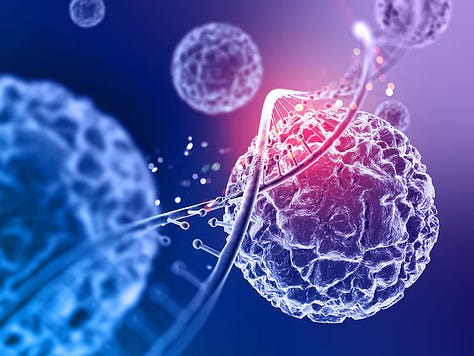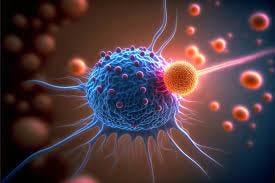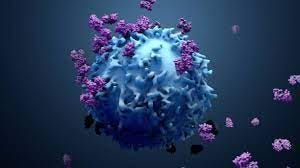What human beings are doing to other human beings is not ‘normal’. It is not natural or healthy. Systems that are meant to be there to protect us are instead damaging all of us through reckless and ultimately needless wars and conflicts – against each other as well as the Earth and Nature on which we are wholly dependent. The sirens of war are escalating to dangerous levels, while politicians and mainstream media (though many feel real concern) have ‘normalised’ this situation. When we watch or read the news, we have come to expect stories and images of babies and children, women, the elderly, the vulnerable, and innocent defenceless men being massacred.
This is not ‘normal’, not how our systems of protection and defence are meant to work.
Yes, in the wild, creatures attack and feed upon other creatures less able to defend themselves, and they fight for territory and mates – it can look brutal, but this is how life is sustained. But humans take this to another level, fighting and waging war for reasons that go far beyond our basic need to survive, grow, reproduce and thrive. Human beings attack a part of our Collective Body when bombs are dropped on innocent children and adults; or natural environments destroyed in order to further the greed of those who want to endlessly consume and accumulate wealth, without thought for the body of the whole we are part of; or power is abused in order to control others and bend them to the will of those in positions of power. When the fighting, the consuming and the controlling is no longer about satisfying essential needs for food, water, shelter and security, then we are needlessly attacking ourself, our own collective body.
The Immune System – Protection, Defence, and Over-reaction
In our individual body, the Immune System is there to protect us from harm – from pathogens, infection and injury. It is a highly complex system, with elements that are innate and others that we acquire throughout our lives. When we catch flu, for example, it will swing into action to generate the immune cells needed to fight the infection and direct them to the cells that are being attacked by the virus. We feel unwell for a while as the healing goes on, but eventually, usually, we recover.



But sometimes things go wrong within our body and the immune system turns against healthy tissues, causing autoimmune diseases; some examples are lupus, multiple sclerosis, rheumatoid arthritis, type 1 diabetes, some kinds of leukemia, myalgic encephalomyelitis (ME), and more.
When the body is attacked by a pathogen, such as a virus, the immune system sets to work to destroy and get rid of the invader, a ‘foreign body’, but sometimes there is an over-reaction and self-tissues are also attacked. During the Covid-19 pandemic we heard a lot about ‘cytokine storms’. Cytokines are chemical messengers in the immune system which regulate the immune response, but a ‘storm’ could signify an over-reaction leading to tissue damage. It became apparent that each of us could be affected differently by excessive reactions to the Covid-19 virus; wherever our personal vulnerabilities lay, there the infection and the over-reactive immune system would go. What a wily beast this virus proved to be!
Stress is considered to be a significant factor in causing these over-reactions of the immune system that can lead to the development of autoimmune diseases. Stress takes many forms, including nutritional, environmental, social, financial, emotional, traumatic. Whatever has caused the stress, the body’s physiological stress response behaves in much the same way. If we are under excessive and/or prolonged stress, ie. more than our immune system, and our psyche, can handle at the time we are infected, injured or traumatised, we are more at risk of developing an autoimmune disease.
Dr Ana-Maria Orbai, rheumatologist at the Johns Hopkins Arthritis Center, asks: “When does the stress on your body exceed your immune system’s ability to handle it? If we knew this, it could be the key to preventing autoimmune disease before it develops.”
Stress, the Autonomic Nervous System, and the Immune System
In the mid 1990s I first came across the idea that extreme stress can affect the autonomic nervous system in ways that cause the immune system to over-react and cause damage to healthy cells and tissues: this was through the work of Professor Alfred Hassig, writing in a UK magazine called ‘Continuum’, which addressed the HIV-AIDS epidemic that was killing large numbers of people, mainly in the gay community initially. His research was showing him that the traumatic grief, fear and emotional stress that the community was going through were escalating the effects of the HIV virus, potentially increasing the chance the illness would lead to death.
To greatly simplify a system as complex as the immune system – there are two main categories of immune cells with different origins and functions: cells known as B-cells, which mature within the bone marrow, patrol the body, seeking out invaders and causing the production of antibodies, which are designed to incapacitate the invader. T-cells mature in the thymus gland, just behind the top the sternum (breast-bone) – I like to think of them as the ‘housekeeping cells’ as they clear up the debris after the battle – dead and dying pathogens and the remnants of other immune cells which have been involved in the process are destroyed. T-cells are essential to clearing the body of the invading pathogen. T-cells are wise in the identification of self and non-self-structures in the body; they remember and can focus a response in specific ways, and are also responsible for the overall regulation of the immune response, helping prevent autoimmune reactions.
What Hassig proposed was that, when we are under excessive stress of any sort, our autonomic nervous system (ANS) is thrown out of balance. The ANS is responsible for the healthy functioning of all our body systems, as well as our emotional wellbeing, so it is extremely important that it can return to balance when thrown off. Hyper-activation of our sympathetic nervous system – connected with the ‘fight-or-flight’ response – supports an overabundant production of B-cells and their antibodies, the army of warrior cells and accompanying chemical weapons; and an under production of T-cells, which are needed both to identify specific pathogens/non-self-structures, destroy infected cells and generally clear up the debris. To counter the imbalance, the parasympathetic nervous system, which is the ‘rest, digest and recuperate’, and ‘tend and befriend’ part of the ANS, needs to be supported.1
The constant bad news we see every day is geared to stir in us grief, outrage, fear, insecurity; this stimulates sympathetic nervous system activation and won’t help our ANS and immune system return to healthy balance. I have just read the news that today the US has bombed Iranian nuclear sites, dangerously escalating the possibility of a wider conflict breaking out! We need to keep protecting ourselves from the fear this might be engendering in us. When the sympathetic nervous system is over-activated by stress of any sort, a state of ‘hyperarousal’ (expressed as anxiety, hypervigilance, readiness to react aggressively, etc) is created; or in more extreme cases, of ‘hypoarousal’ (leading to despair, depression, lethargy, etc); in this state we cannot make healthy and life-affirming decisions. We go into ‘fight or flight’ mode; I assume many politicians and military officers are operating from this state – and so the cycles continue to escalate. We see this being enacted so devastatingly in the Middle East right now – the cycle of inflicting on others the trauma that has been inflicted upon us, but not processed in a restorative and healing way.
An important aside: Many of the writings and images I am finding here on Substack offer a beautiful antidote – the ‘good medicine’ - to the fear-despair agenda of so much of today’s news and political manoeuvring. Here are so many voices who understand the need to return to our own bodies and to Nature in ways that are loving, caring, respectful. The more of us who follow these invitations, the healthier the collective body can become, as stress is calmed and the immune system is given a chance to do what it is meant to do – protect us from harm, not damage what is healthy within us.



Cultivating a Conscious Collective Body
In my writings I invite you to consider that we are all connected, all integrally part of the whole, a collective body of humanity (as well as being an individual, of course); and beyond this, we are all integrally woven into ‘the web of life’, which includes Earth and all her more-than-human inhabitants. I truly believe this collective body is becoming more fully conscious – a conscious collective body emerging out of the practices of millions of people, individuals, groups, circles around the globe, who aspire to a more positive, creative, restorative quality of consciousness.
Being a part of the collective body, our personal symptoms might reflect some part of the collective dis-ease; and our steps towards health and wellbeing might support the healing of the collective body and the evolving of a collective consciousness that is focussed towards loving kindness, care, respect and compassion.
As I wrote at the end of the blog mentioned in the Footnote below:
‘First and foremost, dig deep within to find loving kindness and compassion for yourself. It will support your immune system, and you will be in a better place to offer the same to others when they need it.
Nourish yourself, play, relax and rest, stay safe, be well.’
And please don’t feel guilty in those times when you are not able to do any of this!
A Collective Body in deep conflict within itself
When I look at what is happening in the world – appalling wars, potentially catastrophic climate change and species extinction, the fragility of our systems of finance, government and technology, abuses of power, particularly against women, children, the vulnerable and groups seen as ‘other’ (by skin colour, race, religion, disability, gender identity, etc) – I see a collective body in deep conflict within itself. Collectively we are under more stress than we can sustain, and systems that should be there to protect us are turning against our collective body.
To return to my introductory question - Are we suffering from a collective autoimmune disorder? Yes, I think so. Those in positions of power who are tasked with protecting all of us, too often go to extremes that harm instead of heal. An aspect of preventing this sickness from developing further is to reduce the many stresses we are under, as far as we can, those of us within the collective who are able to at this moment in time (for, of course, not all are able to - if you were living in Gaza right now, survival would be all you could think of); this can help us to reflect and make more positive choices. Another is to recognise that we are truly ‘in it together’, each of us an integral part of the collective body of humanity, and every one of us matters.
I believe that every little act of kindness and healing we practice, towards ourselves, each other, or Nature, adds a drop to the great ocean of healing that is needed right now. If, in times of illness, injury, old age or adverse life circumstances, all you can do is attend to your own healing, then please do it, wholeheartedly! And know that you are contributing to the wellbeing of the collective body in some small way. Every drop matters.
Another time I will write more about what I see as the death throes of the dying patriarchy, the ‘militarised masculine’, and the ‘mothered masculine’. For now, thank you for reading this piece.
Do send comments if you wish, and if you have appreciated this article, please click on the ❤️ below – it helps me to get an idea of what is landing with you.
Linda
I wrote about stress and the immune system in a blog, ‘Stress, Immunity, and the Coronavirus: The Earth is burning. So are we’, in October 2020. You can read it here: https://www.lindahartley.co.uk/blog.html Including an excerpt from an interview with Professor Alfred Hassig (Continuum 1997):
“There are five identified categories of stress: infectious, toxic, traumatic, nutritional and psychological stress. If there is a chronic accumulation of several of these stress factors it causes a whole-body inflammation. That means antibody production increases in order to keep pathogens under control or eliminate them while production of T-cells is suppressed. This leads to an over-demand on the organism – fight or flight – without the necessary restoration time – anabolism. Body reserves are used up in an extensive way, more than they are built up – catabolism. This achievement-oriented switch in the vegetative nervous system is called stress by the Hungarian scientist Hans Seyle. The stress hormones adrenalin and cortisol are produced extensively. This hypercortisolism causes the Thymus gland to shrink and fewer T-cells are produced while T-cells in circulation migrate to the bone marrow where they activate B-cells. In the short term these mechanisms are life-saving; when persistent they damage the immune system and create illness.”
https://www.virusmyth.com/aids/hiv/mbhassig.html (accessed September 16th 2020)
(Please note that Prof Hassig has been a controversial figure in the medical science world, but I feel this need not detract from many important insights he discovered.




That sounds like an interesting insight, I hope it will lead somewhere useful for you xx
Oh yes, a longer breath out, sitting in the shade, cooling down. Thank you Els 💚